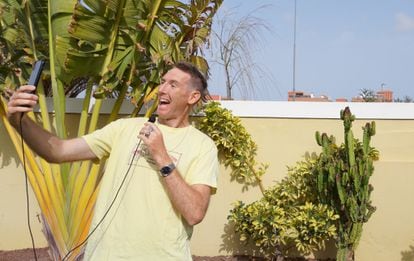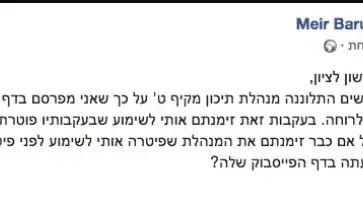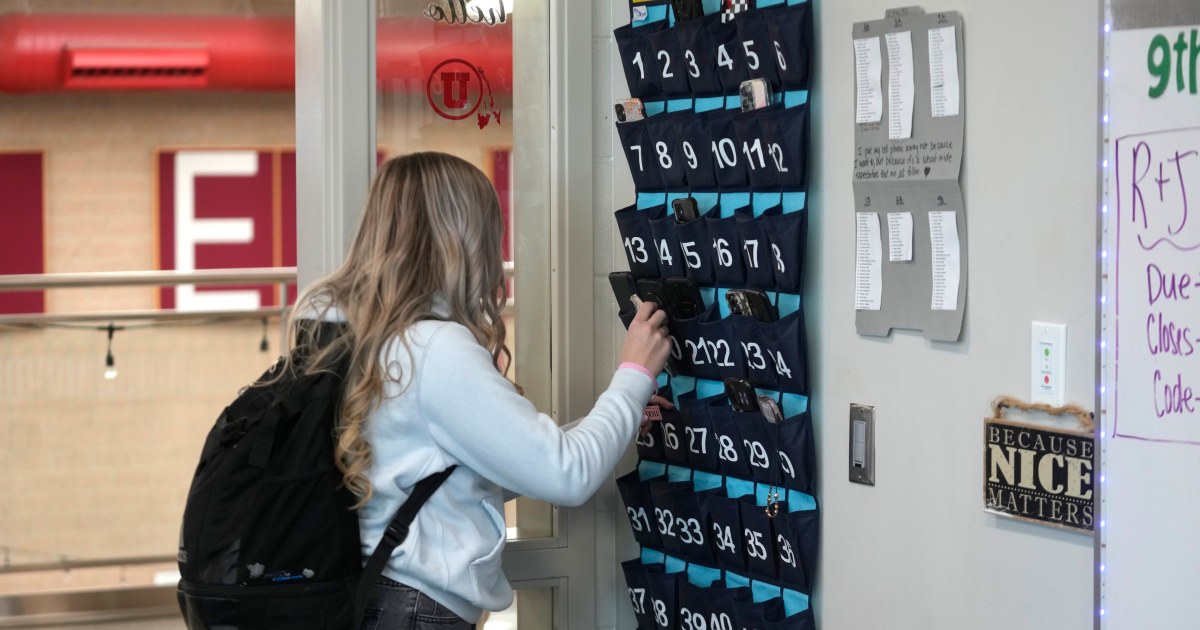More and more students are turning to social networks to try to solve their doubts.
“I have an exam tomorrow, it will save me again“.
"In the videos everything seems very easy."
“No one helps me with math like her.”
Desperate teenagers before an exam refer to Susi Profe on Twitter, a creator of Physics, Mathematics and Language content who is approaching a million subscribers on YouTube.
Like this Primary Education teacher, other teachers have seen her popularity skyrocket in recent times, such as Robbie V. (Robert James Vincent) and Alberto Bustos, English and Spanish language teachers, respectively.
They spend more and more time online, where they have built communities around their subjects.
Susi Profe,
30, is actually called María Jesús Villanueva: "When I said it for the first time, the children made
tiktoks
saying that I had been cheating on them," she laughs during a video call with EL PAÍS.
Some of the videos of this teacher from a school in Madrid exceed three million views, such as the one dealing with the addition and subtraction of polynomials.
It prepares its contents with the desire to help students in higher courses: “I have always had a vocation for teaching.
When I was a student she always helped my classmates”, she remembers.
Five years after starting, her community now has 390,000 followers on TikTok, 26,000 on Instagram and nearly a million on YouTube.
María Jesús Villanueva ('Susi Profe'), in an image provided by her.
Although she was already a successful creator before the pandemic, she explains that, from that moment on, "teachers changed the chip and already use YouTube videos in their daily classes and even send them to watch at home."
"And the chip in the student has also changed, who has seen that she can turn to the internet when he has doubts," she adds.
According to him, TikTok has served to show a more personal facet: “In YouTube videos you go where you go, but on TikTok there is a greater connection with the kids and, also, in their language.
The community that is being generated around Susi Profe is very grateful, with hardly any
haters
[haters]”.
In TikTok there is a greater bond with the kids and, in addition, in their language
Maria Jesus Villanueva, 'Susi Teacher'
Hugo Lorán, a 2nd year ESO student, has been following her for a long time: “I discovered her when I didn't know how to do the school exercises.
I was struck by the fact that he explained in such a calm way and made it seem easy.”
According to the creator, most young people go to her channel the day before the exam.
"I try to explain something to them from scratch in 10 minutes with the examples that may be the exception," she says.
Camino López, an expert in educational innovation, explains: “In TikTok they demand that you have a superpower of synthesis.
For some teachers it is not easy, but they feel the responsibility to go where their students are.
If you create your material on a platform that they are not going to consult, it falls on deaf ears”.
Finding the right narrative on TikTok changed the life of Robert James Vincent (Wales, 37), known as
Robbie V.
This English teacher has almost three million followers on the profile that bears the name of his academy, Let's Speak English, located in Santander.
His case is that of TikTok's own success, which led to the popularization of his other accounts, as he also explains by video call: "In five years we had reached about 2,000 followers on Instagram."
In a second attempt to boost his TikTok profile, in early 2020, he uploaded four videos.
One of them went viral and in two days he had 50,000 followers.
When the pandemic started, he already had 100,000.
The Welshman has gone from having local students to reaching thousands of students around the world who buy his digital products.
Robbie V., founder and teacher of Let's Speak English, while recording a video for TikTok, in an image provided by himself.
What caught Robbie V.'s attention from TikTok was that he could learn from the creativity of young people: “I liked that of having to be so direct and I picked up the style a bit.
Since I'm a pretty
salao guy
, I wanted to keep that line."
These videos could be called "educational pills" and, as Camino López explains, "they are for something very basic, as a learning trigger."
The expert believes that teachers who start an activity on social networks "are able to condense the topic in a way that solves life," and adds: "Many students go for that speech when they feel stuck and want to see it explained otherwise”.
In addition, she considers that "a virtual educational community always translates into significant learning."
Nora Cuéllar, a 2nd year ESO student, doesn't think it's possible to explain a difficult lesson on TikTok because of its brevity, but she acknowledges that "short videos are better, because they leave more time to practice."
Her partner Hugo assures: “Thanks to the videos I have avoided some suspense”.
Elías, a 4th-year student, also turns to them to “satiate his curiosity about a subject, rather than the study itself.”
According to a Marketing Science survey, 94% of TikTok users say they have learned something from the platform, and
85.5% say they pay more attention to videos with which they can learn something new.
These teachers are able to condense the subject in a way that solves your life
Camino López, expert in Information and Communication Technologies
Julio Ruiz Palmero, a professor at the University of Malaga specializing in Educational Technology, considers that these videos, to which students are accustomed, "have to be accompanied by other pedagogical proposals".
Of course, "we cannot turn our backs on these channels", he acknowledges, although "implementing it in the day-to-day of classes is not easy".
Alberto Bustos, a 52-year-old from Madrid, is a professor at the University of Extremadura and the creator of the Language Blog, which since 2016 has been a YouTube channel with close to 250,000 subscribers.
His Instagram profile exceeds 4,000 followers and his TikTok account exceeds 47,000.
“Convincing 200,000 people that I am going to release the Language
badge
every week and that they sign up, I think it has its merit, especially without being video games, mobile phones or cooking,” he says by video call.
Alberto Bustos, during the recording of one of his YouTube videos, in an image provided by him.
In September he went to a part-time to professionalize as a creator.
"We'll see if it's economically viable," he says.
To do this, he has launched paid online courses taught by Zoom, with which he has a closer relationship with his community.
Despite having so many followers on TikTok, he left the app in 2019, before it became the success it is today.
However, there are still users asking where he is and why he doesn't post anything.
The answer?
“I couldn't give more of myself.
I had to prioritize and I stayed on YouTube,” he says.
"What caught my attention about TikTok was that it had a vast music library that I could use to explain Lengua with what people hear: pop, reggaeton... It was the way of teaching while delighting, which is what it's all about," he explains. busts.
Both Susi Profe and Alberto Bustos and Robbie V. have gone live, although only the latter has tried Twitch.
All three insist that these broadcasts allow them to get to know their followers better and to know what difficulties and interests they have.
Although live shows are in their golden age, one of the 2nd-year students, Hugo, argues that he prefers short videos: "I easily lose attention with long ones."
The expert Ruiz Palmero explains: "We have gone from being able to read a book for several hours to a situation in which everything happens at the click of a button, which is reflected in the students, who are always multitasking."
This specialist insists that teachers should not get carried away by the latest application that has come out without having a clear objective.
Susi Profe goes further and declares that, although they are useful tools, "they will never replace face-to-face teaching", and insists: "If they want to complement, great, but they cannot go beyond the explanations of their teacher because then Susi will be there. Teacher.
Yes I am, but besides him.
His teacher is flesh and blood, the rest are complements”.
You can follow
EL PAÍS TECNOLOGÍA
on
and
or sign up here to receive our
weekly newsletter
.














